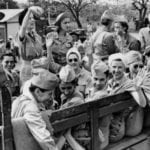 Mysteries
Mysteries  Mysteries
Mysteries  History
History 10 Surprising Stories About the Texas Rangers
 Humans
Humans 10 Philosophers Who Were Driven Mad by Their Own Theories
 Miscellaneous
Miscellaneous 10 Video-Game-Worthy Weapons and Armors from History
 Weird Stuff
Weird Stuff 10 Psychics Who Accurately Predicted Wartime Events
 The Arts
The Arts 10 Pieces of Art Inspired by a Broken Heart
 Health
Health 10 Science Fiction-Sounding New Medical Treatments
 History
History 10 Surprising Facts About the Father of Submarine Warfare
 Space
Space Ten Astonishing New Insights into Alien Worlds
 Weird Stuff
Weird Stuff 10 Bizarre Summer Solstice Rituals Still Practiced Today
 Mysteries
Mysteries Top 10 Haunting Facts About the Ghost Ship MV Alta
 History
History 10 Surprising Stories About the Texas Rangers
 Humans
Humans 10 Philosophers Who Were Driven Mad by Their Own Theories
Who's Behind Listverse?

Jamie Frater
Head Editor
Jamie founded Listverse due to an insatiable desire to share fascinating, obscure, and bizarre facts. He has been a guest speaker on numerous national radio and television stations and is a five time published author.
More About Us Miscellaneous
Miscellaneous 10 Video-Game-Worthy Weapons and Armors from History
 Weird Stuff
Weird Stuff 10 Psychics Who Accurately Predicted Wartime Events
 The Arts
The Arts 10 Pieces of Art Inspired by a Broken Heart
 Health
Health 10 Science Fiction-Sounding New Medical Treatments
 History
History 10 Surprising Facts About the Father of Submarine Warfare
 Space
Space Ten Astonishing New Insights into Alien Worlds
 Weird Stuff
Weird Stuff 10 Bizarre Summer Solstice Rituals Still Practiced Today
10 Unexpected Wartime Friendships
Making friends usually takes a backseat in most people’s minds, especially when they happen to be in the middle of a war. After all, how can they expect to carry on a decent conversation with bullets whizzing over their heads? Yet some of the most unexpected tales of friendships came amidst the madness of war. Even more bizarre is the fact that some of these friendships involved enemy soldiers who, instead of destroying each other, must have thought, “Why are we fighting again?” and then proceeded to shake each other’s hands.
10 French And German Soldiers Serenaded Each Other
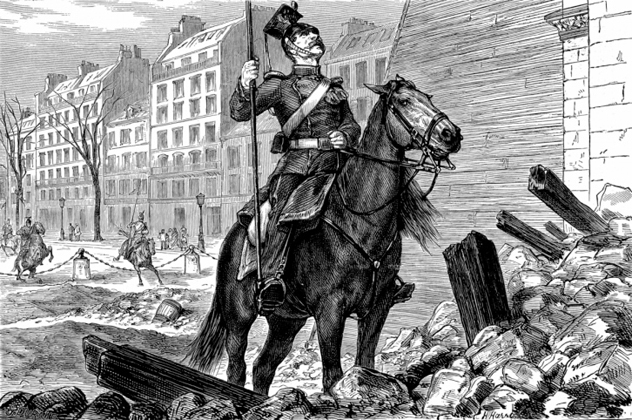
While you may already be familiar with the Christmas Truce of World War I—that magical moment when soldiers laid down their weapons and celebrated the holiday season alongside each other in the middle of no-man’s land and in their own trenches—that wasn’t actually the first time that happened. A lesser-known precedent occurred during the Franco-Prussian War in 1870.
Just outside of Paris on Christmas Eve were the opposing trenches of French and German soldiers who had dug in for the night and were trading volleys of gunfire. Out of the blue, a young French soldier clambered out of his position unarmed and in full view of the Germans and began singing a French rendition of “O Holy Night.”
Both sides soon stopped firing and listened intently to the man. As soon as he finished his piece, a like-minded German soldier also climbed out of the trenches and sang Martin Luther’s “From Heaven Above To Earth I Come.” That poignant moment was enough for both sides to stop firing on each other for the day, which leads us to the inevitable question: Why can’t we fight all wars with song instead?
9 German And American Soldiers Sat Down For Christmas Dinner

Considering that it was one of the bloodiest campaigns US forces ever fought in, it’s hard to associate the Battle of the Bulge with anything even remotely related to Christmas. Yet one of most inspiring tales of friendship and camaraderie happened in the middle of that brutal battle and involved a group of German and American soldiers. That unlikely moment was due in large part to one German woman, Elisabeth Vincken.
On Christmas Eve, she and her 12-year-old boy Fritz took in three American soldiers who were lost in the middle of the Ardennes forest on the condition that they don’t bring their weapons inside. Some time later, four German soldiers seeking shelter also knocked on her door. Elisabeth—who must have had nerves of steel—managed to convince them to also leave their weapons outside the hut and observe a truce with the Americans.
Amazingly, not only did the two sides not kill each other, but they even shared Christmas dinner together at the same table—the Germans also treated one of the American soldiers who was wounded. And as if this story couldn’t get any more beautiful, the Germans bade the Americans a fond farewell the next day, but not without giving them a compass and instructions on how to return to their own lines.
8 Russians And Germans Team Up Against Wolves
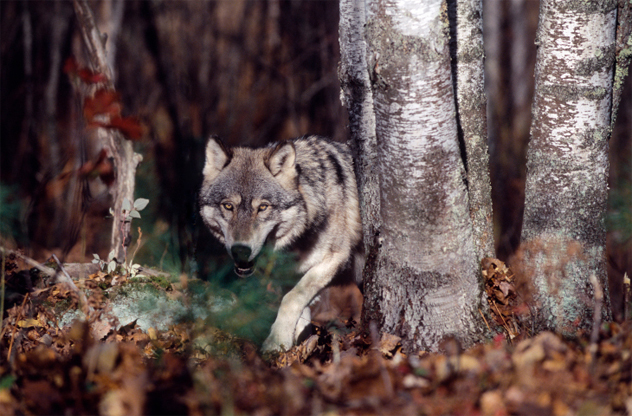
While Russian and German soldiers were busy trying to kill each other on the Eastern front during World War I, a new, third power had emerged in the form of large and ferocious wolves. Due to the ongoing human war which devastated their habitats and reduced their natural prey, the beasts became more desperate for food and started targeting the human populace and their livestock. That hunger also drove them to attack soldiers who were out on patrols or stationed in the trenches.
At first the Russians and the Germans tried to fight the wolf onslaught on their own. They shot, poisoned, and threw grenades at the wolf packs—which didn’t work because as soon as they killed off one group, another would appear out of nowhere. Finally, both German and Russian forces agreed to stop fighting each other and focus on the wolf menace first. After a long and arduous battle, they decisively won the “Wolf War” and sent the canine combatants away with their tails between their legs.
7 Union And Confederate Troops Became Friends Along The Riverbank

In a build-up to the 1862 Battle Of Fredericksburg, both Union and Confederate forces had amassed on opposite sides of the Rappahannock River and were preparing for the inevitable clash. Thankfully, fighting was delayed by less-than-favorable conditions brought on by the cold November wind. During this time, Union and Confederate troops who patrolled their respective side of the river came to know and befriend each other. They traded goods such as tobacco and coffee, which they placed on toy paper boats for the other side to pick up.
Eventually it got to the point where some individuals even crossed the river to exchange newspapers and converse with their counterparts. To fight boredom, the Confederates played games such as baseball and held boxing matches along the riverbank with the Union troops serving as spectators and cheerleaders. This idyllic peace was not to last—on December 11, Union forces crossed the river and and engaged the Confederates in what would become one of the bloodiest battles in the Civil War.
6 ANZAC And Turkish Forces Buried Their Dead Together

One of the costliest battles for the Ottoman Turks in World War I came during the Battle of Gallipoli, specifically their May 19 attack on Allied lines to try to force them back out to sea. Unfortunately, the lines were already well-defended at that point by ANZACs (Australian and New Zealand Army Corps), who proceeded to annihilate wave after wave of advancing Turkish troops. After the smoke cleared, thousands of Turkish troops and a few hundred ANZACs were left dead in the middle of no-man’s land. To make things worse, the sweltering summer sun caused the bodies to rot faster and spread their stench all over the battlefield.
On May 24, a cease-fire was established to allow both forces to bury their fallen comrades. Soldiers from both sides met in the middle and worked together to bury the dead. As the opposing combatants worked, they gradually came to admire one another for their bravery, and began to exchange souvenirs and other trinkets. When the job was done, both camps wished each other luck and returned to their respective positions, after which, you guessed it, they tried to fill no-man’s land with dead bodies once more.
5 The Jewish-American Sniper And German Pilot Who Became Life-Long Friends
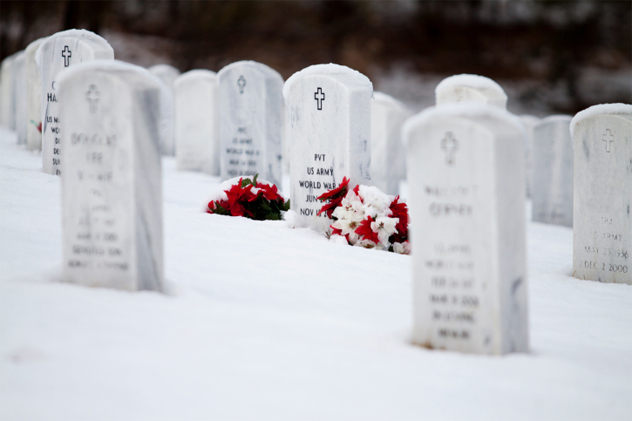
The incredibly heart-warming tale of friendship between Max Gendelman and Karl Kirschner happened during the extremely bloody Battle of the Bulge. Prior to their fateful meeting, Gendelman—born in Milwaukee and raised as a devout Jew—saw his entire company decimated by the surprise German offensive. Eventually, he was captured. He tried twice to escape before finally being sent to a POW camp in Lind.
Due to being fluent in the German language, Gendelman became the unofficial liaison between the prisoners and their captors. He eventually met Kirschner, who had gone AWOL from his unit and was hiding in his family’s farm beside the camp. The young German pilot taught Gendelman how to evade the guards and brought him to the farm for chess and coffee, after which he helped him return undetected to the camp again.
They repeated this several times; on one such meeting the pair planned and implemented their escape from Nazi Germany. With another American prisoner accompanying them, Gendelman and Kirschner pedaled their way through enemy lines under the guise that Kirschner, the German, was transferring them to another prison. Eventually Gendelman reached American lines but never forgot his newfound friend’s kindness—he later helped Kirschner move and settle into the US, where both men became good friends for the rest of their lives.
4 A Jewish Woman’s Love Affair With An SS Officer

Granted this doesn’t contain any over-the-top romantic themes like Twilight, but the bizarre twists and turns surrounding Edith Hahn Beer’s life make her own love story all the more interesting. Born in Vienna, Austria, she had been studying law when the Nazis came to power. Persecution soon led to deportation, and Beer was conscripted for slave labor. After a year, she escaped a train which would supposedly bring her back to her hometown. With the help of a Christian acquaintance, Beer took on the identity of a nurse and soon transferred to Munich in 1942. It was here, in an art gallery, that she met her future husband—an SS officer named Werner Vetter. After only a week of courtship, Vetter asked for her hand in marriage.
Beer for a time tried to stall his advances, arguing that it was inappropriate to marry during war, but finally she broke down and admitted that she was Jewish. Fortunately, Vetter didn’t turn her in and instead revealed his own secret: He had a kid and was in the middle of a divorce. The couple married and Beer assumed the role of a submissive housewife. After the war, Vetter was transported to a labor camp. In his absence, Beer regained her Jewish identity and finished her studies to become a lawyer. Upon his return, Vetter resented his wife’s newfound personality and opted to divorce her. Looking back, Beer didn’t really know if she truly loved Vetter, but wished him well anyway and stated that she was just thankful for all the people who helped her remain alive.
3 The British And German Pilots Who Got Lost In The Wilderness
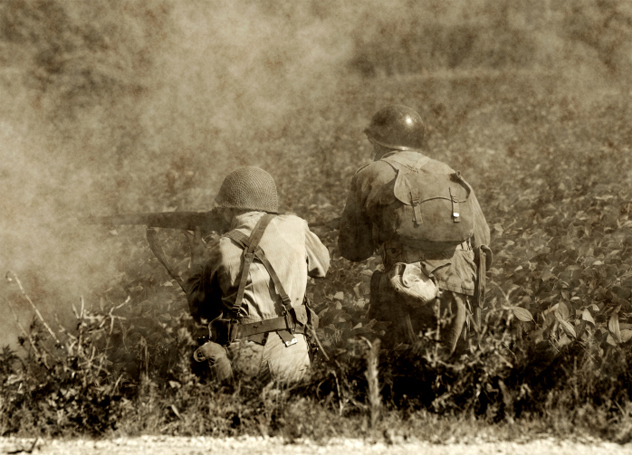
Pilots of the British Royal Navy and Luftwaffe found themselves working together in a mutual battle for survival in the middle of Norway’s cold, harsh wilderness. That improbable scenario happened in April 27, 1940, when three British fighters fought a German bomber that had strayed away from its formation. After a while, the German bomber and one of the British fighters were both forced to crash land in different areas near a village called Grotli. The British airmen, Captain Richard Partridge and his wingman Lieutenant Robert Bostock, reached a small hut, which they used for shelter.
After a while, they were joined by the three surviving crew members of the German bomber, which had been piloted by Lieutenant Horst Schopis. The tense atmosphere was defused when both pilots shook each other’s hands and the British shared their meager rations with the Germans. Some time later, both sides agreed to go to the nearest locality in hopes of getting more food and aid.
Unfortunately, tragedy struck when a Norwegian patrol that stumbled upon this motley crew accidentally killed one of the German airmen. Schopis and the remaining German were taken prisoner while Partridge and Bostock were repatriated to Britain. Schopis and Bostock met again after the end of the war in 1977 and said they never harbored any ill-feelings towards one another.
2 The “Quiet” Fronts Of The Spanish Civil War
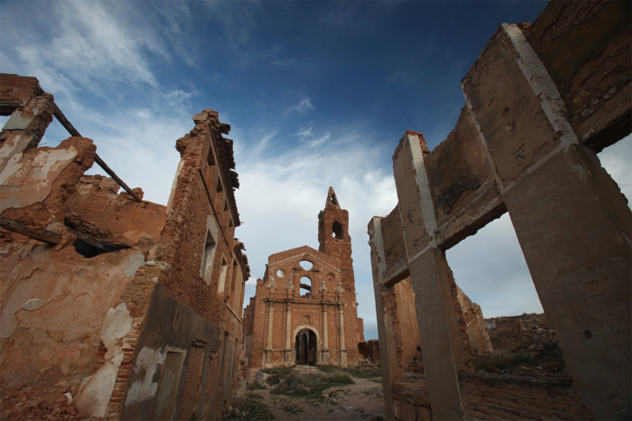
Both the Fascist and Republican leadership must have had a headache trying to get their men to fight each other during the Spanish Civil War. After all, how were they supposed to conduct a respectable war if their soldiers became best friends with the enemy? Numerous incidents of fraternization among enemy soldiers took place in the “quiet fronts” of the war. Most of the rank-and-file combatants were unwilling to hurt their fellow Spaniards, and instead often met them out in the open, where they acted as if they weren’t in the middle of a war at all.
In one incident, several hundred Republicans exchanged newspapers with their Fascist counterparts. They also warned each other frequently of impending attacks and often threw parties if someone they knew from the other side was alive and well after a battle. Such was the overall leniency that the Spanish showed towards each other that a few die-hard foreign volunteers even became disgusted for their lack of effort in trying to kill one another.
1 ANZAC And Turkish Troops Held The Fort Together
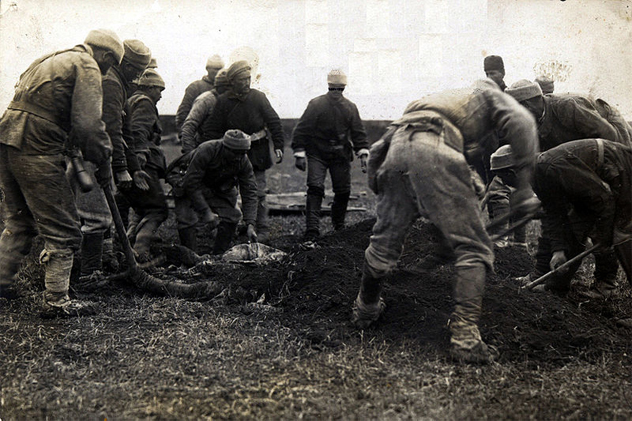
We’ve already discussed in a previous list how German and American forces fought together against the SS in the closing days of the Second World War. Such an extraordinary event also occurred during World War I when Australian soldiers helped Turkish forces defend their positions against Arab raiders. Prior to that incident, the ANZACs had taken Amman, the capital of Jordan, from the Turks, which led to about 5,000 men fleeing from their nearby garrison of Ma’an and setting up camp in Ziza. The local Arabs—who had long suffered under Turkish rule—saw it as a chance to take revenge, and began to surround the Turkish encampment.
Eventually their numbers reached more than 10,000, and it was only by good fortune that a small group of ANZACs found and agreed to help the Turks (who were more than willing to surrender at this point) defend their positions. For one night, both ANZAC and Turkish forces shared stories over an open fire and kept a watchful eye for a surprise Arab assault. By morning, a bigger ANZAC force had arrived to help facilitate the peaceful Turkish surrender. Eventually the Arabs backed off, all the while cursing the ANZACs and Turks for their unseemly collaboration.
Marc V. is always open for a conversation, so do drop him a line sometime.
